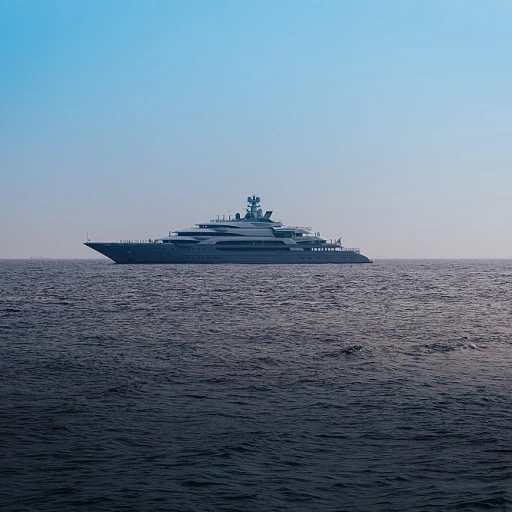The Surge in Hybrid Yacht Popularity
The Rising Tide for Eco-Friendly Luxury Yachting
Amid growing environmental awareness, the demand for sustainable luxury experiences has reached the maritime industry, propelling the popularity of hybrid yachts to new heights. These cutting-edge vessels are swiftly becoming the preferred choice for eco-conscious individuals seeking to combine opulence with responsibility. According to recent market analysis, searches for 'eco-friendly yachts' and 'hybrid yachts for sale' have seen a remarkable uptick, indicating a significant shift in buyer preferences towards more sustainable yachting solutions.
Meet the Demands of Modern Seafarers
Today's yacht enthusiasts are not just satisfied with sheer aesthetics and performance; they crave innovation that aligns with their values. Hybrid yachts deliver just that, offering a blend of luxury and reduced environmental impact. Owners are increasingly recognizing the benefits of hybrid systems that combine traditional internal combustion engines with electric propulsion. As stated by a leading yacht manufacturer, "Hybrid yachts are not a passing trend; they're a conscious choice for a sustainable future." This sentiment is echoed in sales figures, with a reported 20% increase in the uptake of hybrid and electric yachts compared to previous years.
Navigating the Currents of Green Technology
Advent of next-generation marine technology has positioned hybrid yachts at the forefront of sustainable sailing. Featuring sophisticated systems that manage energy use efficiently, these vessels exhibit a remarkable ability to conserve fuel and reduce emissions. Industry experts predict a continuous growth in the adoption of green technologies, with one report suggesting that the global market for hybrid yachts could expand by as much as 8% annually over the next decade. Moreover, statistics show that a significant number of potential yacht buyers list 'environmental performance' as a key factor in their purchasing decisions.
Comparing Performance: Traditional vs Hybrid Yachts
Performance at Sea: Traditional and Hybrid Yacht Engine Comparison
The debate around the merits of traditional engines versus their hybrid counterparts is not just a matter of fuel efficiency; it’s also a performance issue. With advancements in technology, hybrid yachts are demonstrating competitive performance alongside their traditional counterparts. On one side, we have the classic diesel-powered yachts known for their raw power and speed. Yachting Magazine points out that conventional engines are time-tested, but the latest hybrid yacht models offer intriguing alternatives. A statistic worth noting is that hybrid yachts can reduce engine usage by up to 30%, according to recent manufacturer data. This reduction can contribute to less wear and tear, potentially elongating the vessel's lifespan.
Navigating the Seas with Reduced Noise and Vibration
One aspect where hybrid yachts have an unequivocal edge is in the realm of noise and vibration control. Marine experts have noted that hybrid systems can operate in a silent mode, which drastically reduces the acoustic footprint—a significant consideration for owners valuing discreet and peaceful sailing. The International Journal of Marine and Coastal Engineering reports that the use of electric motors in hybrid yachts reduces vibrations by up to 70%. These qualitative factors are critical when evaluating the performance of luxury yachts, as they significantly enhance the on-board experience.
Enhanced Maneuverability and Fuel Consumption
When it comes to maneuverability and consumption, the advantages of hybrids become even more pronounced. The integration of electric motors allows for finer control at low speeds, making docking and navigating through tight spaces easier—a functionality appreciated by yacht owners in crowded marinas. Moreover, a study by Boat International highlights that hybrid yachts can be up to 40% more fuel-efficient in certain conditions compared to traditional yachts. This level of efficiency not only has cost implications but also points towards a significant environmental consideration for the conscientious yacht owner.
Refining Yacht Performance with Technological Integration
Today's consumers are looking for yachts that not only perform well but also include the latest technological advancements. In this area, hybrid yachts are increasingly appealing, as they often come equipped with state-of-the-art battery technology and energy management systems. These tech integrations, reported by Superyacht Times, allow for an enhanced sailing experience by providing additional power when needed and saving fuel for when it's not. With such systems, skippers can plan for optimal fuel usage, leading to cost savings. The data speaks volumes: recent surveys have shown that yacht owners prioritize technological advancements, with over 65% considering them a major factor in their purchasing decision.
The Environmental and Operational Advantages of Hybrid Yachts
Embracing a Greener Horizon with Hybrid Vessels
The integration of hybrid propulsion systems within the yacht world speaks volumes about the sector's commitment to sustainability. Statistics from the International Maritime Organization indicate a steady rise in eco-friendly mandates, encouraging a shift towards renewable energy sources aboard luxury vessels. Hybrid yachts, unlike their traditional counterparts, rely on a symbiotic relationship between electric motors and conventional engines. This duality not only reduces greenhouse gas emissions but also champions the cause of oceanic conservation, a topic of great concern amongst the maritime community.
Advantages that Go Beyond the Environment
While the ecological benefits stand out, operational upsides of hybrid yachts cannot be overstated. These vessels offer a serene sailing experience with noticeably reduced noise and vibration levels—qualities highly favored in the luxury market. Furthermore, data suggests that the demand for yachts that can offer extended range capabilities without refueling is climbing. Hybrid systems meet this need by optimizing fuel consumption and enhancing energy efficiency, providing a clear financial incentive for owners to consider during their purchase decision.
Hybrids: A Beacon of Innovation in Marine Technology
Aside from their environmental and operational benefits, hybrid yachts are outfitted with the latest technological advancements. Innovations such as energy recovery systems that utilize the drag of the hull to recharge batteries while sailing, and the adoption of advanced materials for weight reduction, paint a clear picture of a cutting-edge and responsible future for yachting. Moreover, as regulatory bodies tighten emissions standards, hybrid yachts stand at the forefront, ready to meet and exceed such requirements without compromising luxury or performance.
Hybrid Yachts: Combining Luxury with Responsibility
- Reduction in Emissions: Hybrid propulsion can significantly curtail CO2 output, aligning with global goals for pollution reduction.
- Operational Efficiency: Increased fuel efficiency leads to lower operating costs, a compelling reason for owners who prioritize long-term savings.
- Quiet Operation: The shift to electric power offers tranquility, a prized feature for guests seeking solace on the seas.
Cost-Benefit Analysis for Yacht Owners
Calculating the Return on Investment for Hybrid Yachts
When considering the transition to a hybrid yacht, the initial investment is often significantly higher than that of a traditional motor yacht. However, statistics from market research indicate that the operational savings can be substantial over time. According to a study by Grand View Research, the global hybrid electric marine propulsion market is projected to grow at a CAGR (Compound Annual Growth Rate) of 6.5% from 2021 to 2028. This suggests that hybrid propulsion is not just a fleeting trend, but a smart long-term investment. Fuel efficiency improvements of up to 30% have been reported by owners who made the switch to hybrid, resulting in noticeable cost savings.
Breaking Down the Maintenance and Upkeep Costs
- Reduced Engine Wear-and-Tear: Hybrid systems, which rely on both electric motor and a traditional combustion engine, can result in less wear on the engine, as confirmed by a Lloyd's Register report which indicates reduced maintenance intervals for hybrid vessels.
- Cost of Battery Replacement: While battery costs can be high, prices have decreased by approximately 87% since 2010 according to BloombergNEF, making the prospect more economically viable.
- Regularity of Maintenance: Hybrid systems require less frequent oil changes and have fewer mechanical components that could fail, leading to a predictive decrease in maintenance costs over the yacht’s lifespan.
Assessing the Impact of Green Incentives on Yacht Ownership
Yacht owners should also be aware of the financial incentives for choosing environmentally friendly options. For instance, several countries offer tax deductions, credits, or rebates for the purchase of hybrid or electric vehicles, which can translate into significant savings at the institutional level. Recognizing the importance of sustainable practices, the International Maritime Organization (IMO) is implementing stricter emissions standards, which could lead to increased operational costs for traditional yachts in the form of fines or retrofitting requirements, potentially strengthening the case for hybrid solutions.
Future-Proofing Your Investment
Moreover, investing in a hybrid yacht can be seen as future-proofing your asset. With increasing regulations on carbon emissions and a growing public awareness around environmental issues, the resale value of traditional yachts may suffer. Conversely, hybrid yachts, with their eco-friendly appeal, might retain or even increase in value over time. It is essential for yacht owners to analyze trends and forecasts within the yachting industry. As indicated by data from The Superyacht Agency, there is an upward trajectory in both the demand for and the resale value of eco-conscious yachts since the past decade.
Real-world Examples of Hybrid Yachts on the Market
The Pioneers of Hybrid Yachting
The hybrid yachting revolution is not just a concept; it is a reality taking shape across the seas. Real-world examples, such as the pioneering Silent 80 by Silent Yachts, illustrate the practical implementation of hybrid technology. This remarkable vessel, with its solar-electric propulsion system, highlights the strides being made in sustainable yachting. According to the manufacturer, the Silent 80 can cruise endlessly at 6-7 knots using solar power alone. The fusion of luxury and eco-friendliness is a game-changer for yacht enthusiasts seeking a guilt-free experience on the waves.
Revolutionizing Luxurious Sea Travel
Another testament to the potential of hybrid yachts is the majestic Savannah, built by Feadship. The yacht's innovative 'Eco-Boost' system has set new standards for efficient yachting, promising a 30% reduction in fuel consumption compared to traditional yachts of the same size. Feadship's commitment to excellence is not only in performance but also in design, offering silent operation and zero emissions while at anchor.
Leveraging Cutting-edge Technology
When considering the impact of hybrid yachts on the environment, it is essential to look at the numbers. According to a study by the International Council on Clean Transportation, greenhouse gas emissions from maritime shipping could be reduced by up to 20% by integrating hybrid systems. The Arcadia A85 is a living example of this potential, with its solar panels providing up to 3.5 kW of clean energy, powering the boat's electrical systems and reducing generator use. Owners who choose the Arcadia A85 are not only enjoying the art of sailing but also investing in a future where blue oceans remain pristine for generations to come.

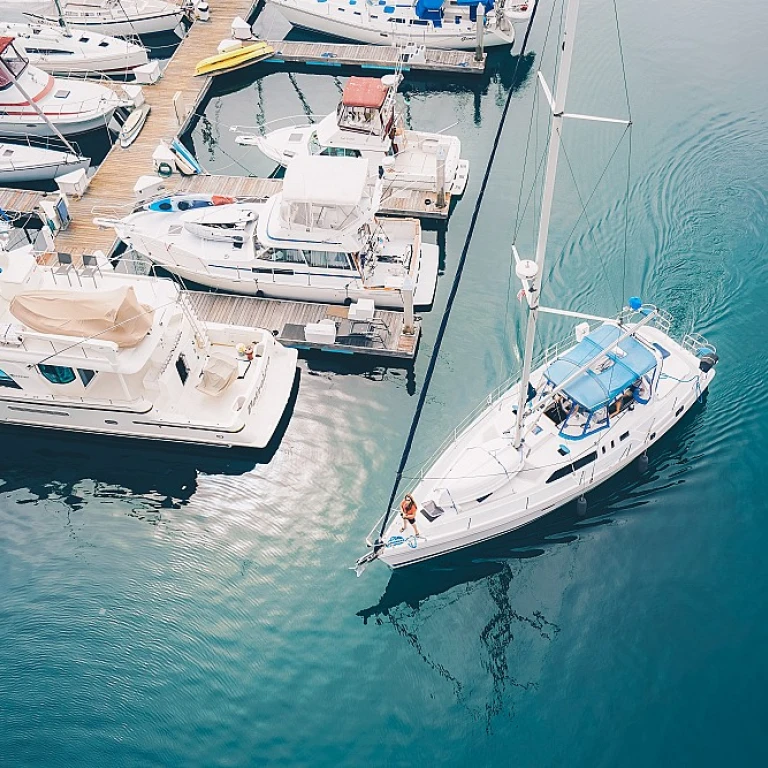
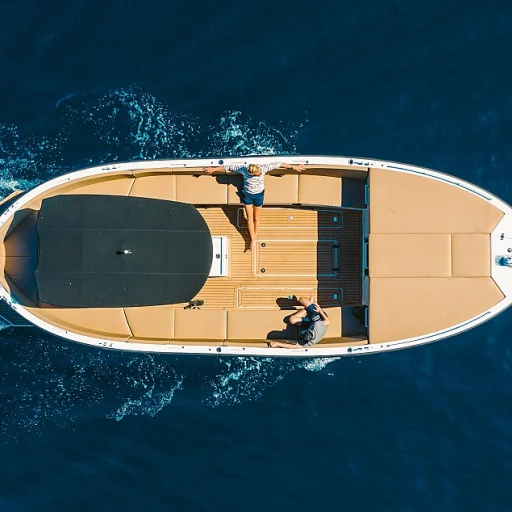

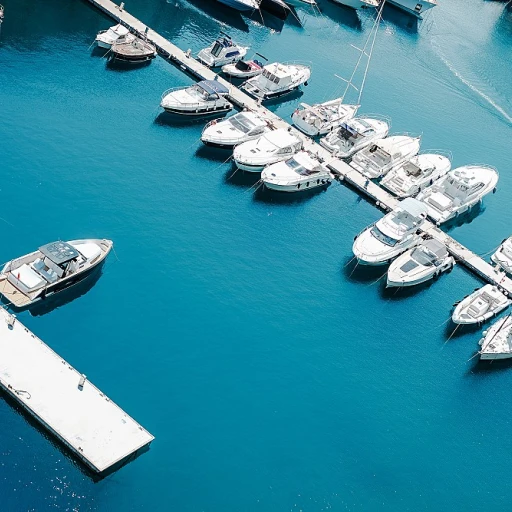
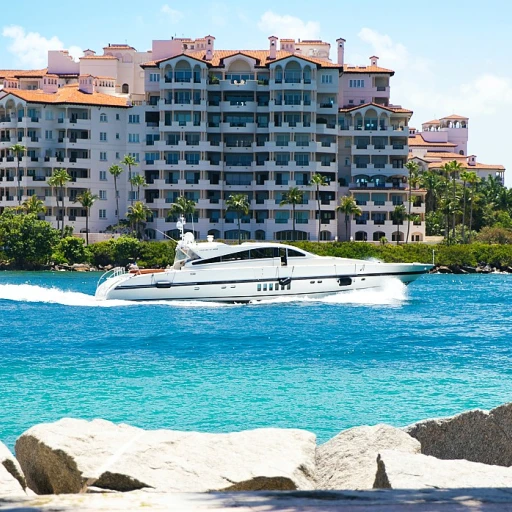
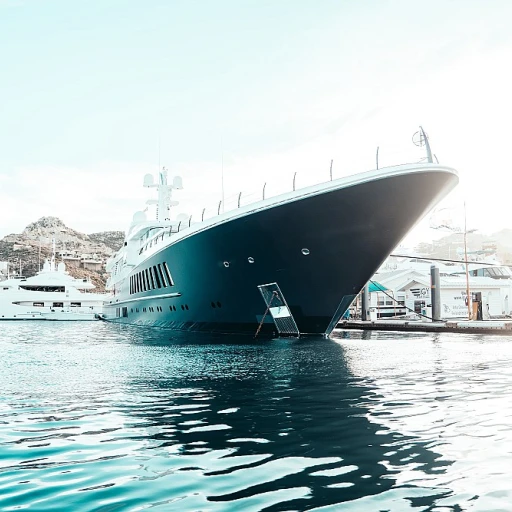
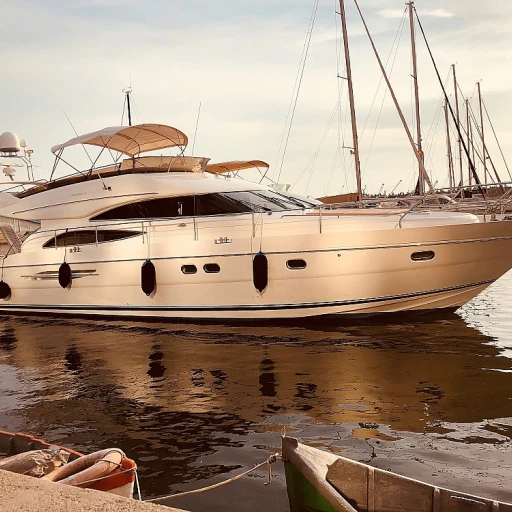
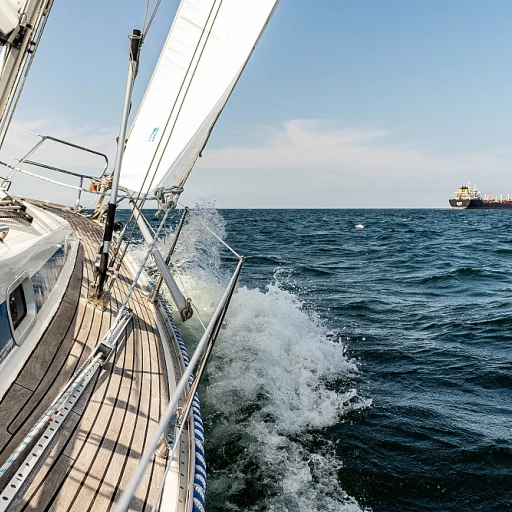


-large-teaser.webp)
